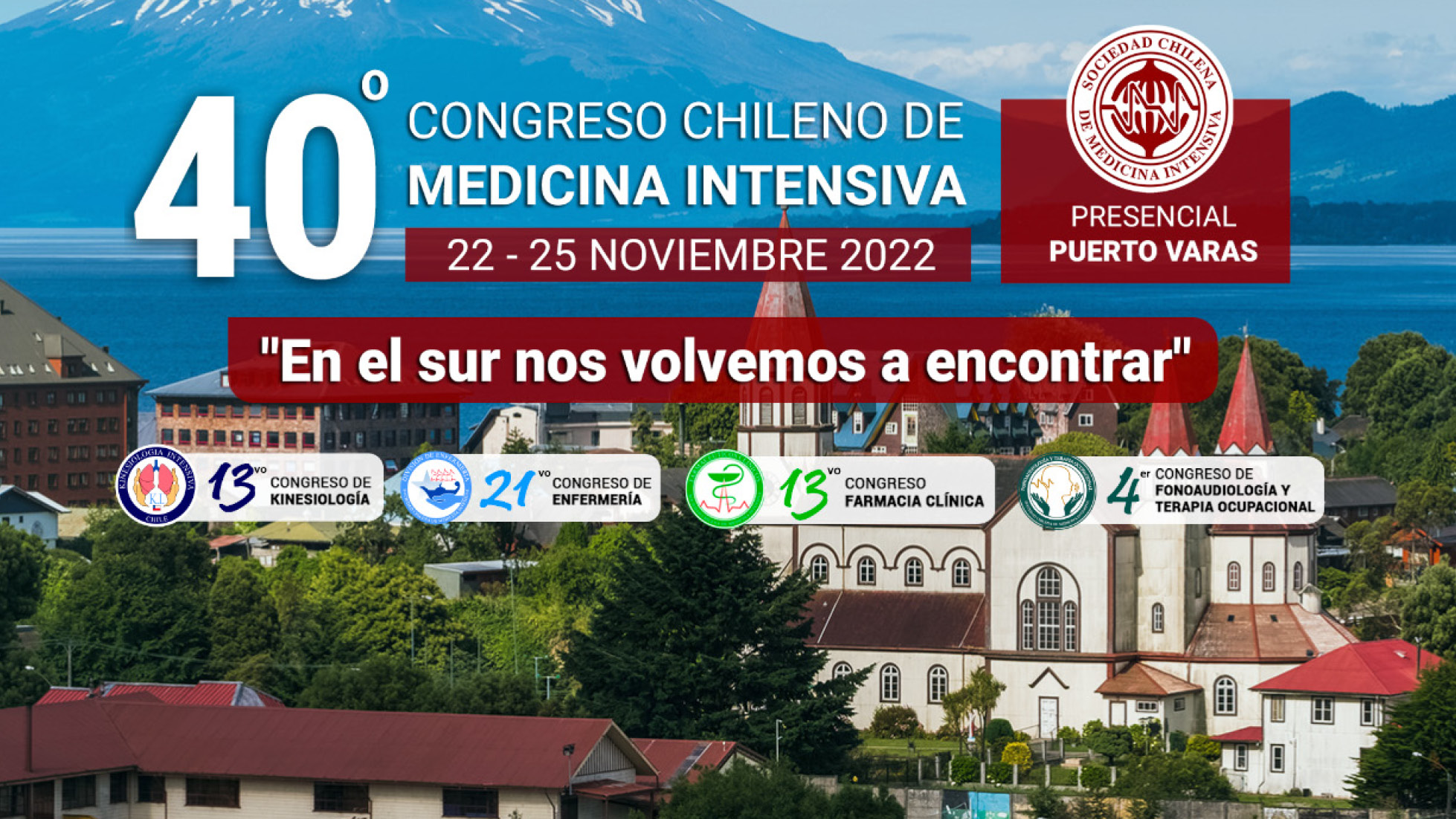Dr. Carmen Presti, associate professor of clinical at the School of Nursing and Health Studies (SONHS), was among the international presenters invited to the 40th Congreso Chileno de Medicina Intensiva (Chilean Society of Critical Care Medicine).
The Congreso, hosted by the Sociedad Chilena de Medicina Intensiva, or SOCHIMI, was the organization’s first face-to-face event since the start of the COVID-19 pandemic in 2020, and it drew over 1,000 attendees, she estimates. The multidisciplinary event took place in the beautiful tourist town of Puerto Varas over Thanksgiving week, November 22 to 25, with tracks for medicine, nursing, kinesiology, clinical pharmacy, speech-language pathology, and occupational therapy.
“I was without my family for Thanksgiving, but I was treated like family at this event, so much warmth and appreciation for sharing my knowledge,” says Dr. Presti, noting that her sessions were probably attended by anywhere from 200 to 400 nurses. “It was a nice showing, and the nurses were really eager to learn from us.”
Her presentations at the conference touched on three timely topics: the role of the nurse practitioner in the intensive care unit (ICU), caring for patients on ECMO (extracorporeal membrane oxygenation), and novel hemodynamic monitoring strategies. As a long-time nurse practitioner in the cardiovascular ICU of Miami’s high-volume Jackson Memorial Hospital, Dr. Presti has had extensive clinical and scholarly experience in each area.
“I am heavily involved in taking care of patients on ECMO, and we use invasive hemodynamic monitoring,” she notes. “My SONHS and Jackson Health colleague Dr. Nichole Crenshaw and I collaborated on writing an overview of ventricular assist devices for these extremely high-acuity patients.”
Dr. Presti learned from the Chilean nurses that these kinds of lifesaving measures are not widely accessible in all regions of the country. “Only about a sixth of the audience in my ECMO session had worked with an ECMO machine,” she reports. “That was surprising to me because these are all ICU nurses. That means a lot of patients who could have a bridge to transplantation or survival may not get it in a lot of the rural areas of the country.”
Dr. Presti also was asked to join a panel discussion with a Chilean physician and critical care nurse on the emerging role of the nurse practitioner in Chile. “We talked about what they felt would be pros and cons of integrating advanced practice nursing role into the ICU in their country,” she says. “It really made me appreciate how formalized our nurse practitioner role is here in the States. You tend to take that kind of stuff for granted. I am inspired by a lot of these critical care nurses who provide specialized care but are not paid any more for their level of skill. They are obviously doing it for the love of knowledge and for wanting to provide the best patient care. That was inspirational to me.”
Conference organizers had learned about Dr. Presti’s work from Cristobal Padilla, PhD ’21, a Chilean ICU nurse scientist and recent SONHS PhD in Nursing Science graduate.
Reflecting on the event, she feels she learned as much as she taught. “There were a lot of really amazing international speakers,” she says. “I was honored to be among the group chosen to speak.”
One of the prominent presenters she recognized was a Brazilian physician involved in a major study on global sepsis survival guidelines. “These are really well-known guidelines that everyone uses,” she says. “It was exciting to meet someone who was a big part of the study.”
Prior to the conference, Dr. Presti visited Pontificia Universidad Católica de Chile in Santiago, where she had been invited to address faculty and clinicians they partner with about the role U.S. nurse practitioners play in the ICU.
“The nurse practitioner role is just now being established in Chile, and it is evolving with our collaboration at SONHS,” she says, referencing the efforts of her SONHS colleague Dr. Juan González in helping Pontificia Universidad Católica originate the oncology nurse practitioner role, as previously reported in SONHS News.
“There’s always a first time to try something new, and these faculty physicians and nurses are really encouraged by what we nurses have achieved in the U.S,” says Dr. Presti. “I just hope our faculty can continue to inspire and support them and expand our focus to other schools in the region.”
She says research is needed to help formalize the advanced practice nursing role in Latin America. “We have been able to show in the U.S. that APRNs are just as safe as physicians, if not more so, and they decrease hospital length of stay and cost,” says Dr. Presti. “What Chilean nurses are missing to expand their role is that research piece that validates how their additional training improves outcomes. That is going to change as more PhD nurses from Chile get their education and contribute to that literature.”
For more information about SONHS, visit www.sonhs.miami.edu.

